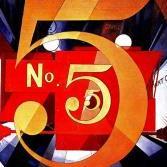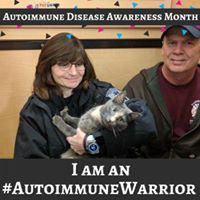-
Posts
14 -
Joined
-
Last visited
Blue Goose's Achievements
Newbie (1/14)
0
Reputation
-
Blue Goose changed their profile photo
-
Haven't been in for a few years now, but some of the names are familiar. Hoping to stick around this time.
-

Seattle Fire Dept.'s Ambulances
Blue Goose replied to engine173351's topic in Equiqment and Apparatus
I was in Seattle a few months ago and can confirm that those are ambulances, not support vehicles. Braun Northwest is located in Washington, has a large number of Pacific NW customers and builds many ambulances with the emergency lights located at the roofline of the box. I'm guessing that they built Seattle's fleet. http://www.braunnorthwest.com -
Scurvy? Time of day, weather conditions, response time and ambulance staffing? Upon arrival: Type and condition of location? General appearance of the patient? Patient's posture? Skin condition? Vitals signs?
-
If you want experience, work at a hospital; many hire part time techs. As for the private services, they will hire you, and they will all give you no worthwhile experience. Pick whichever one is closest to you, or has the biggest call bonuses, or doesn't require you to wear a tie, or wha.ever else is important to you. I've worked at more than one, as a basic and paramedic, and they are all just about the same. If you have specific questions, PM me.
-

Does anyone work for a private in Chicago?
Blue Goose replied to twilliams988's topic in General EMS Discussion
Twilliams, Yes. Pm me with specific questions and I'll answer them; I work for one currently. Bigj1130, Rescue Eight reopoened a few years ago when RMT folded, if you happen to care. -
2wheelinemt started following Blue Goose
-
I worked in a system that had the same protocols as Ambo has (may even be the same system); we did not have RSI but rather Drug Assisted Intubation. The DAI protocol for Etomidate in head injured patients called for 0.6 mg/kg IV and Versed 2mg increments IV up to 10 mg total as necessary for post-intubation sedation. For non-head injured patients the dosage of Etomidate was 0.3mg/kg IV, repeated in one minute if adequate sedation had not been achieved (same Versed dose). We also had the option of using Versed 4 mg IV (and 2 mg increments thereafter up to 10 mg) without Etomidate. Having worked several places in Illinois, I do not know of any EMS systems that currently use paralytics, but I could easily be wrong. http://loyolaems.com/sop/sop.pdf See pages 27 and 28 for the complete protocol.
-

Volunteering for "First Aid Officer" @ a Camp
Blue Goose replied to ds15's topic in General EMS Discussion
I worked at a Boy Scout camp once. Applicable state laws required that all medications be locked in the medical office. Our medication policy was that nothing would be given to a minor by the medical staff. Both OTC and prescription medications were given to an adult leader from a youth's troop; the adult would then administer the medication in loco parentis. This avoided the problem of acting outside the scope of practice, as the medical staff simply provided the adult with all the prescription medications for that particular troop and/or the requested OTC medication. The dissociation between the medical staff and the medications also forced parents to communicate dosing instructions with the boy's leaders, something that needs to be done, as they are the ones responsible for the boy's well-being. While your job may not fall under the jurisdiction of the respective state's EMS legislation, if you are going to be anything more than the proverbial "Good Samaritan," you need medical direction. That is to say, if there you accept any obligation (paid or unpaid) to provide medical care at any level you must have the appropriate medical oversight. It needn't be complex, but is required by by the national standards of the Boy Scouts (M-33). The 2008 national standards: http://www.wrbsa.org/program/cv/2008%20Res...20Standards.pdf See M-33 and 34 for standards about medical personnel; M-20, 21 and 22 for standards about medical procedures are record keeping. Of course, you will need to comply with any laws as well. PM me with questions. -

How hard is to get a job as an EMT-B in Chicago?
Blue Goose replied to twilliams988's topic in General EMS Discussion
I live and work in Chicago; yes, it will be easy for you to get a job doing transfers all day long. I have worked for multiple private companies and can recommend some more than others. This is of course dependent on the part of the greater area that you live in, unless you want to wear a tie to work (Superior Ambulance). If you're looking for specifics, send me a pm. -
Etymology and definitions of "ambulance" from the Oxford English Dictionary (1988 Revision): Just some food for thought.
-

Study: EMT-Basic students largely ignorant of the profession
Blue Goose replied to JPINFV's topic in General EMS Discussion
Having worked for multiple private services in the Chicagoland area, one of which is a member of the Loyola EMS System, the article provided no new knowledge to me. I can think of two possible ways that private services pay better than municipal agencies. On: Many fire departments contract EMS providers from a contract company, the main ones being Paramedic Services of Illinois, Metro Paramedics and Public Safety Services Inc. These contract services pay their employees less than private services and limit the overtime earned. Two: Many of the private services have trouble with employee retention. As a solution to inadequate staffing, many services give their employees ridiculous amounts of overtime. I know a few people who make more money per paycheck in overtime than they do in straight time. My problem with the study is that it only addresses student characteristics and expectations. To someone unfamiliar with the area the possibility of 65% EMT students being employed by a fire department does not seem unreasonable. For the study to be productive, it needs to present statistics regarding the number of job opportunities available in each sector for EMTs and the rate of hire for these jobs. I would also like the study to include the average wage in each sector compared to the number of openings in that sector and the odds of them being filled by new EMTs. -
The one time I interviewed applicants for a job I asked "why are manhole covers round?" It was more to see how the applicant approached an abstract problem than to obtain a correct answer. The answers ranged from logical to asinine.
-
EMS isn’t a lofty goal yet to be achieved. It isn’t the pipe-dream of our merry band here. (Good, professional EMS is, and also is another topic.) It exists, and from what I have seen, it is deplorable. The crux of the matter is that I am anti-volunteer, and completely justified in it. I am not only an EMS provider, but a member of the profession; I do not simply provide medical care, but am paid for it as well. The profession of EMS is hurt by volunteer EMS. Volunteers hurt the profession in monetary and non-monetary ways. As a professional (member of the profession) MY salary is affected by the volunteers halfway across the country from me. Simply put, I am paid less because people provide the same services for free. And so it is right for me to complain about this. And it is justified for me to not want their existence continued. Respectively, those who want EMS to be all volunteer are hurt by my salary. Not meaning to advocate that, I feel the need to explain that this concept is not restricted to EMS, but any establishment consisting of both paid and volunteer services. If the local grocery had volunteers to sack, the paid ones would be angry about it. And I don’t think anyone has a good rebuttal to that. This is not meant as an attack on AMESEMT, but seemed an appropriate place to post this thought. I regard your opinion as valuable and hope you stay while understanding that your situation is not the same as most volunteers.
-

In Your Opinion, What Is Holding USA EMS Back?
Blue Goose replied to spenac's topic in General EMS Discussion
The paradigm of EMS is the single biggest contributor to our decline. Merriam-Webster defines paradigm as “example, pattern; especially: an outstandingly clear or typical example or archetype.” We are seen as not being a separate profession by much of the public and many of the EMTs out there. A few of the reasons I could think of: Education. It’s been discussed enough here not to warrant any further mention. The fire departments: where I grew up, ambulance service was provided by the local fire department if you called 911 or by a private company if you called them. Given that most people’s interaction with EMS was through 911, it is believed by many that all “real paramedics” are firefighters primarily, and medical care is just part of the job, while those employed by the private services are simply “ambulance drivers.” Although I was disappointed that many don’t believe EMS is a separate profession, I can understand why. To create an EMS department that handled fire suppression on the side would only transfer the problem to the firefighters, and as good of an idea as this sounds, separate departments is the most effective. Volunteers: like the firefighters, as long as people continue doing EMS in addition to a real job, we will not be recognized as a profession. Our name: EMS; Emergency Medical Services, has defined what many in our field think that we should provide: medical care in times of emergency. It’s funny, the last time I read that, transportation was not written anywhere in there, yet is somehow an expectation of EMS. Somehow or another the terms EMS and ambulance transportation have become synonymous and one who provides EMS is also expected to provide ambulance service and vice-versa. We need a name that accurately reflects our purpose. Lights and sirens: having them and using them on an ambulance only reinforces the image of us as public safety, rather than health care professionals. I’ve never seen an air ambulance with a light bar, and only regarded them higher for it. I firmly believe that removing them from ambulances would be one of the best ways to help us become a true health care profession. -
You wanted advice; here it is: spell correctly, capitalize, use apostrophes, know the difference between “alot” (misspelling of “allot,” which means “to distribute”) and “a lot,” know that “your” is possessive while “you’re” is a contraction of “you are,” know that “any way” refers to one of multiple ways and “anyway” is a synonym for “anyhow,” realize that one of the reasons your (our) generation is thought of as lazy is because your (our) writing is lazy, punctuate your sentences in a not only technical, but also stylistic manner. Good written communication (different than well written communication) will get you further (an abstract distance, opposed to the physical distance described by “farther”) in a career as a federal agent than an EMT license will. Good luck.


